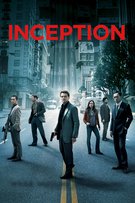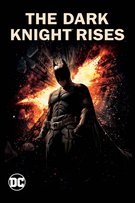Interstellar (2014)

I wanted to love Insterstellar. It’s a sci-fi drama about a dying earth and one man’s journey to save his farm and his family. It’s big and ambitious and it has a lot of say about a lot of things, including fathers and sons, fathers and daughters, hope and despair, humility and lack thereof, climate change, humanity, and space travel. It has a large cast of people who win awards, albeit most of them white, and they act their parts beautifully. It is sad and it is moving and it is somehow very personal despite its massive scope and space looks amazing and alien-yet-not. It’s never stupid, even if it becomes over-sentimental. It is also at least a half-hour, if not a full hour, too long.
Joseph ‘Coop’ Cooper is a widowed farmer who lives with his father (Lithgow) and two children, Tom (Timothée Chalamet) and Murph (Mackenzie Foy, who gives an amazing child performance of subtlety and depth). The farm is dying – is already dead – and, like the rest of the world, everything is a dustbowl. Earth cannot sustain any more crops. Lung disease and malnutrition are depleting the population. Murph and Coop, who was once a test pilot for Nasa, have hope; Grandpa and Tom do not, but they have a stoic love for their land and their family. It is definitely in these family scenes where Interstellar is at its most personal and affecting, and the relationship between Murph and Coop is the most realistically drawn, powering the entire picture and keeping it tethered when its other elements pull you away.
There are strange goings-on in the Cooper home, and these lead Coop and Murph to the massive underground lair of Professor John Brand (Caine) and his daughter Dr Amelia Brand (Hathaway). They have been building a spaceship to seek out a new home for the people of Earth. Following on from a previous mission, long thought unsuccessful by the world at large, they want to go through a wormhole to one of twelve potentially viable worlds. Coop signs up to pilot the ship, and a small team helped by a monolithic robot (voiced by Irwin) accompany him, knowing that they are the last chance for humanity.
Nolan clearly loves classic 1960s and 1970s sci-fi, most obviously 2001: A Space Odyssey and Close Encounters of the Third Kind, both of which resonate throughout this film. There are worse pedigrees to have. The science might be junk for all I know (my physics game is weak), but the film establishes a few facts which ratchet up the tension, not least of which is that several minutes on a distant world are exponentially longer in Earth time. Seeing the devastation wrought by a single mistake which has cost Coop’s team only moments, but for others has cost them years, adds to the peril of being many light years from home with only infrequent video messages from their ever-ageing families to console them.
As with many of Nolan’s films, there are twists which you can’t discuss without giving too much away. Your enjoyment will be affected by whether you worked any of them out in advance, whether you enjoy seeing the twists coming or not, and the extent to which you find them ludicrous or trite, a fine line that’s very down to individual taste. For me, the meandering third act, which ties off all loose ends a little too neatly, detracted from the fine work in building the personal relationships and the thrill of space in the first two hours.
It’s never less than engrossing, and the spectacle is never less than astonishing, but it didn’t leave me feeling very much other than technical admiration for the direction, cast and production design.

